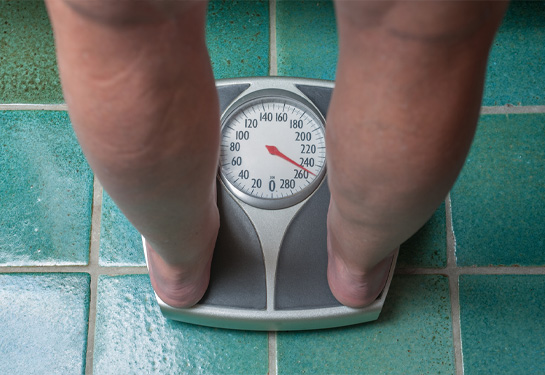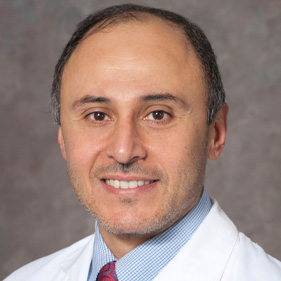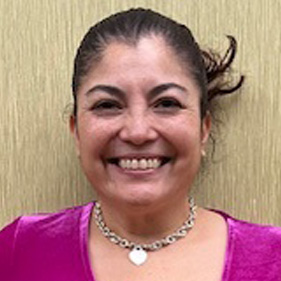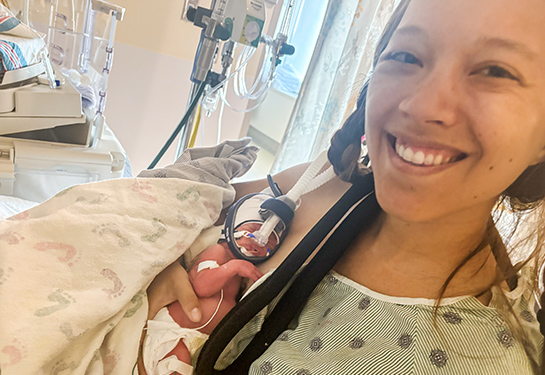'After losing 480 pounds, I'm living a life I never thought I’d have.'
Bariatric surgery offers patients a safe way to end the obesity cycle
In 2018, Tucker Chorjel was 780 pounds and living in his car to save money. He had high blood pressure, was prediabetic and mentally forced himself to get up and move throughout the day, even though physically it felt nearly impossible.
“The ‘check engine’ lights were really coming on,” he said, referring to his poor health.
But eventually he decided to prioritize his health: He closed out 2023 down 480 pounds. He also successfully walked 13 5K races.
Chorjel is living a reality he never imagined possible, thanks to bariatric surgery at UC Davis Health. He’s also one of 10 patients who will walk the runway later this week at a fashion show to celebrate their success and demonstrate to others that weight loss and improved health are possible with bariatric surgery.
Bariatric surgery is about improving health
More than one-third of Americans resolved to lose weight in 2024. But bridging the intention to lose — and the behavioral changes required to lose — can feel wider than the Grand Canyon.
For some of these people, bariatric (or metabolic) surgery can make all the difference to manage obesity and obesity-related conditions that improve not only weight but also metabolism health. Gastric bypass and vertical sleeve gastrectomy, two of the most common surgical approaches, are very effective in treating metabolic conditions like diabetes, high blood, pressure, sleep apnea and high cholesterol. Patients opt for surgery in close consultation with their doctors when diet and exercise alone are unsuccessful or when they face serious health problems because of weight.
We want people to know that although surgery seems like a big deal – and it is a big deal – it is the only effective and durable treatment for obesity that exists today.—Mohamed Ali, Chief of Bariatric Surgery
“I’ve always held the notion that weight isn’t about appearance. Weight is about health,” noted Mohamed Ali, chief of bariatric surgery at UC Davis Health. “We want people to know that although surgery seems like a big deal – and it is a big deal – it is the only effective and durable treatment for obesity that exists today.”
On Friday night, 10 of his department’s patients will participate in the 23rd annual UC Davis Health Bariatric Surgery Fashion Show. Some of the participants had the procedure as recent as two years ago, others nearly three decades ago. They have lost a combined total of 1,161 pounds.
Ali says that the surgery itself is the culmination of a comprehensive program that puts patients on a new healthy journey. Patients learn about the benefits and risks of the procedure; receive medical and psychological assessments; and undergo mental health, lifestyle and dietary counseling. Some people require medical testing prior to surgery. Patients are also supported when they’re ordered to lose weight before the operation.
The program helped Chorjel lose 250 pounds before going into the operating room.
Tucker Chorjel’s childhood: 'Hell on Earth'
Adverse life experiences are a risk factor for developing obesity.
At the age of seven, Chorjel’s mom left. Raised by his grandparents, he began sneaking food and eating double meals. His weight gradually increased.
“It was hell on Earth,” he said. “I was in a private school and tortured every single day for everything. Food was my comfort.”
When his grandfather died, more weight piled on. Ten years later, his grandmother passed away, which prompted “another skyrocket of weight,” he recalls.
“You always say I’d never let myself get to that point. You realize it’s happening after it’s happening,” he said.
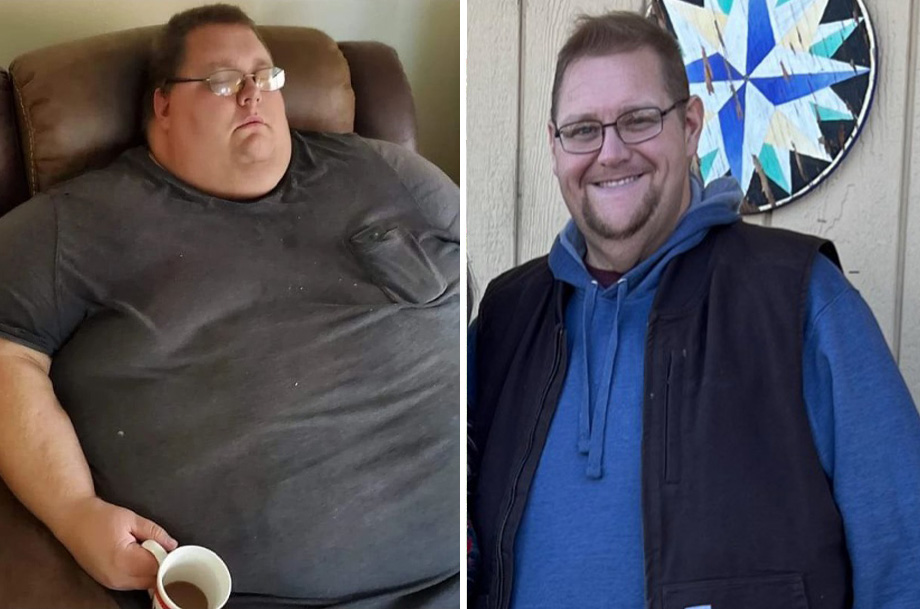
After his grandmother died, Chorjel was too large to get a job. He also needed a place to stay. So, he lived in his car for a year to save up money. During that time, he tried a couple of bariatric programs in the Lake County area.
“They told me I needed to lose weight but never offered how to start losing weight. I also knew I needed to face my demons from my mother leaving when I was young,” he said. “Then, one day, I spent $10 on two king-sized candy bars and a large soda.”
At that point something unexpected happened, which changed his life: “I looked at that candy bar and heard a higher power say, ‘You’re going to die.’”
He tossed the candy in the trash and made an appointment at UC Davis Health. That was 2018. Chorjel was told he needed to be in the 500-pound range for the surgery. Ali said it would take two or three years and then he could operate on Chorjel.
Chorjel lost the weight, but his surgery date was extended, due to the pandemic and a leg infection. Finally, on Aug. 15, 2022, Chorjel was wheeled into the operating room.
“After losing 480 pounds, I'm living a life I never thought I’d have,” he recalled. “I never thought I’d have the opportunity at 37 to have a whole new life. I’m a whole new person.”
Overcoming frustration and failure for Norma Alvarez
Norma Alvarez knows that feeling. At the age of 28, after her third child was born, she found it impossible to lose weight and entered a two-decade cycle of yo-yo dieting.
I did protein shakes, lemonade drinks, the cabbage diet, Weight Watchers. Sometimes I’d starve myself with only water. It was crazy. —Norma Alvarez, Bariatric surgery patient
“That started the dieting saga of doing everything I could to lose weight,” she said. “I did protein shakes, lemonade drinks, the cabbage diet, Weight Watchers. Sometimes I’d starve myself with only water. It was crazy.”
Each attempt resulted in some weight loss, but she’d always regain it — and more — within a few months. Alvarez says she considered gastric bypass but thought it was “an easy way out.” Even a visit to a Bay Area amusement park where she could not fit into a ride in plain view of parkgoers was “embarrassing but not enough to get the surgery.”
So, she continued her relationship with food, which she called, “my husband, my best friend, my sister, my everything.”
Alvarez was diagnosed with sleep apnea. She suffered acid reflux. Then fatty liver disease. Her physician told her she was pre-diabetic. Her cholesterol was too high. At 260 pounds, putting stress on her five-foot-three-inch frame was too much — she realized she needed help.
“I was to the point where I’d take a shower and come out so tired. I was winded just from moving my arms. My knees hurt,” she said. “I needed to be healthy. I didn’t want to die early and didn’t want to get where it was too late for me to do anything about it.”
Today, at 51 years old, she maintains a 100-pound weight loss since the surgery six years ago. She admits, it would not have been possible without the help of the bariatric team at UC Davis Health. When she understood that food would no longer be a coping mechanism, she reached out to the support team and quickly met with a counselor. She still meets with the dietitians to review lab results and re-evaluate her meal plan.
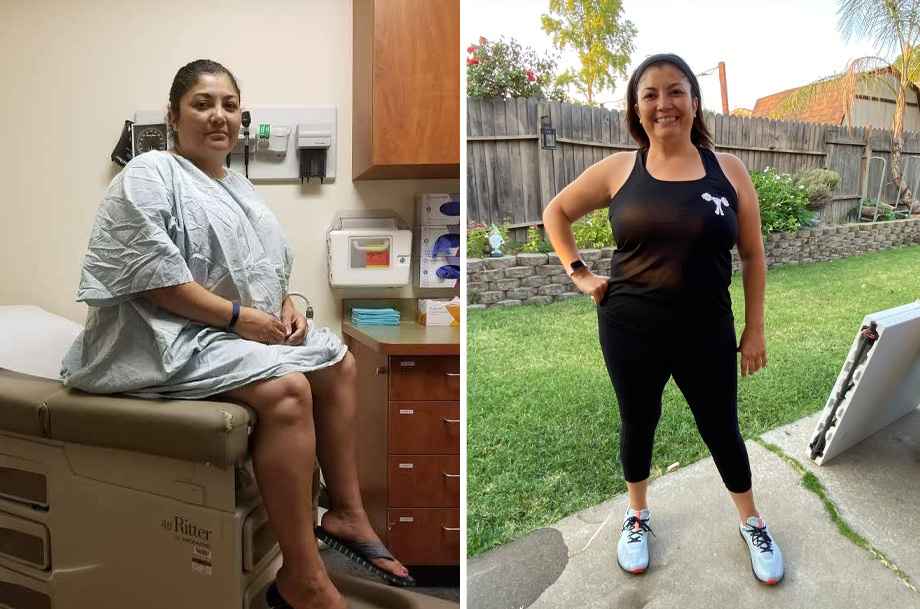
“They’re always an open door. UC Davis Health supported me 100%. I consider them my mini side family. If it wasn’t for them, I would have failed,” Alvarez said.
The team is committed to helping the patients for the rest of their lives. It both affirms the expertise of the surgeons and the strength of the support team.
Ali says the experience is humbling.
“When you look at the person’s journey over their lifetime — what they’ve overcome and their courageous decision to have the surgery — my role is pretty small compared to what that person has done,” Ali said. “I can promise one thing: I never take for granted what the patient has gone through to get here.”
Inspiration on the runway
On Friday night, the "here” will be the stage at the UC Davis Health Cancer Center Auditorium. Alvarez, Chorjel and eight others who chose health through bariatric surgery will model new clothes and their new lease on life.
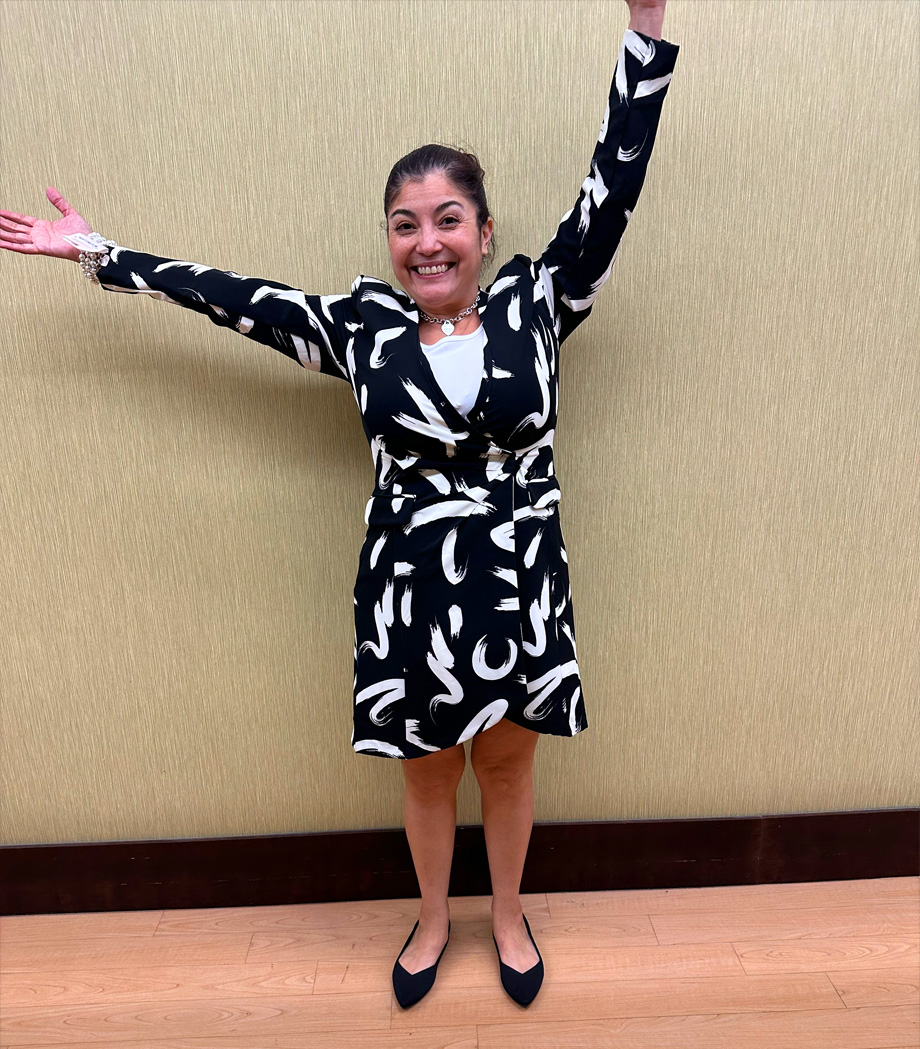
Organizers say the show allows patients to celebrate their success and model what is possible through bariatric surgery.
“There are a lot more patients out there who have developed obesity. We’re seeing people who are coming in at a higher body mass and more metabolic conditions like diabetes, hypertension and heart disease,” Ali said. “But there has been some progress on destigmatizing weight and more people are coming in earlier to inquire about surgery. That’s a nice byproduct of this, early prevention.
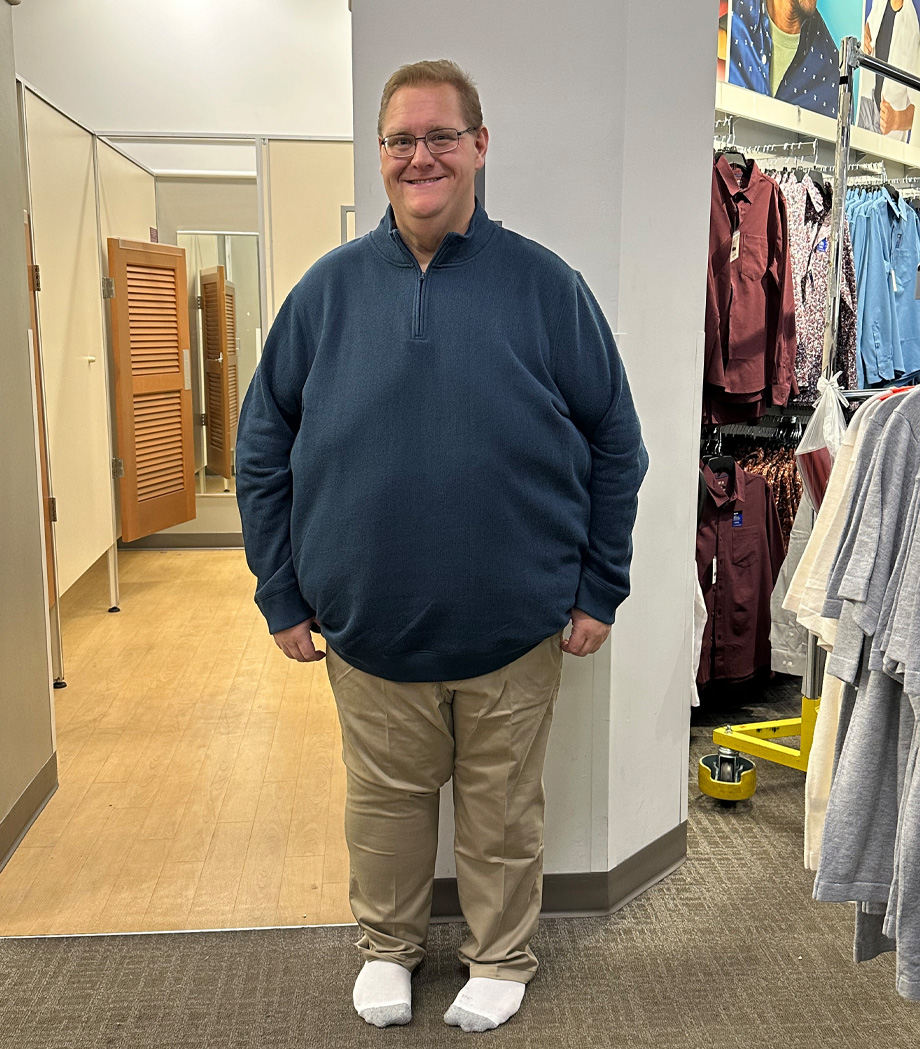
Tucker Chorjel is living a life he never imagined. He says surgery is the greatest thing someone who is living with obesity can do for themselves.
“Because of everyone at UC Davis Health, I have a new life: I can date, possibly get married and have kids,” he said. “I thought I’d die alone because I was fat. Now, that’s not going to be the case.”

